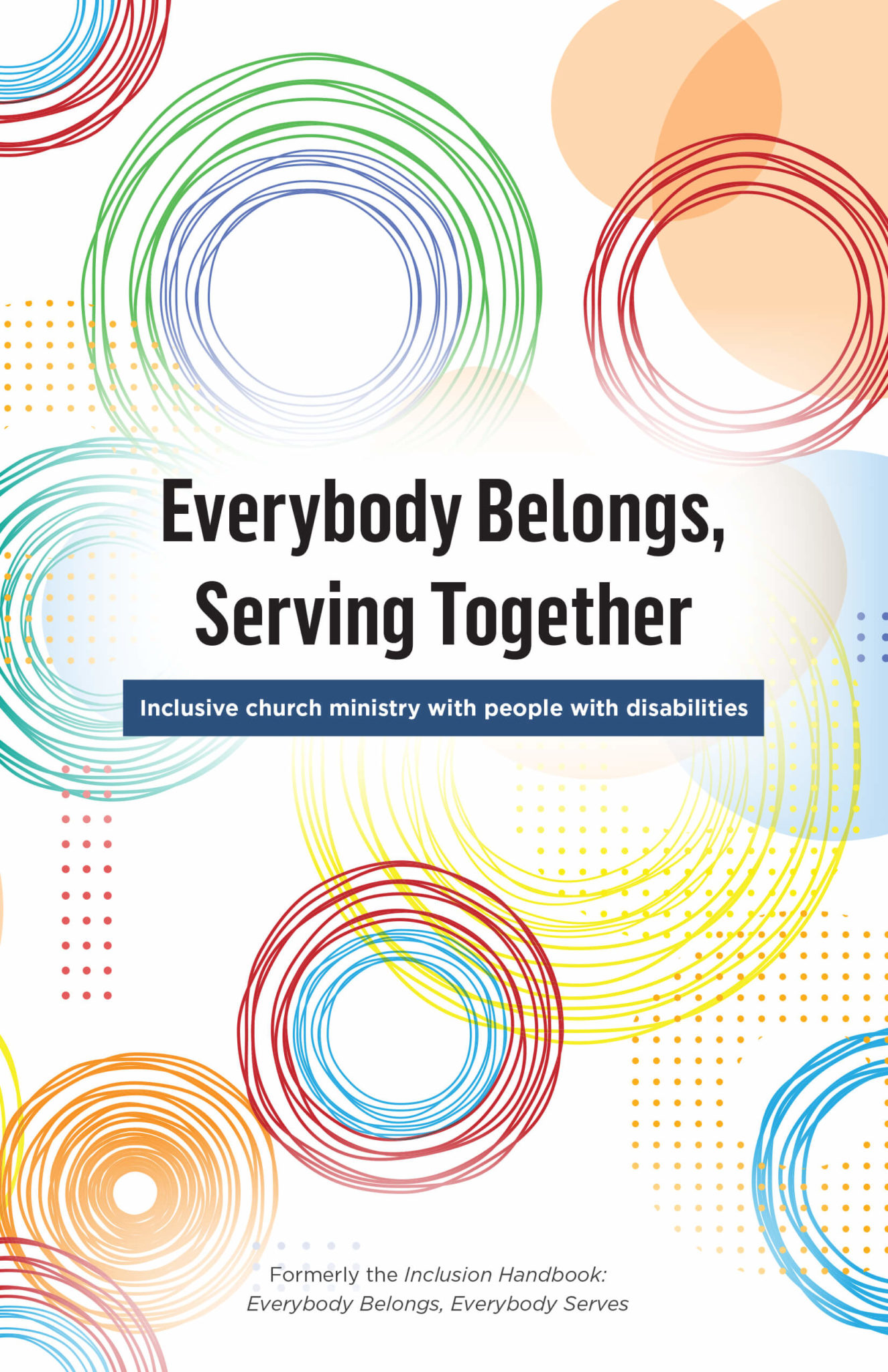God has made each of us with different gifts, strengths, and weaknesses. Often people with disabilities find that other people decide for them how they can and cannot participate in the life of their church community. The church is one body. People with disabilities are underrepresented in the church, despite having as much (or more) interest in faith as the average population. If we fail to intentionally include and accommodate people, the church suffers just as much as the person excluded. Here are a few tips to help you think about working together in God’s growing kingdom!
1. Be careful with first impressions
When you first meet someone, you don’t know what that person can understand or do. Some people who struggle to express themselves are nevertheless great at receiving your communication. People who use wheelchairs may have above-average intelligence. People who are blind are not necessarily hard of hearing. Try not to make assumptions, and get to know each person individually.
2. Brush up on the basics
From person-first language to understanding the boundaries of personal space with someone in a wheelchair, basic etiquette around disabilities is often simple but not necessarily intuitive. (Person-first language means making the person—not the disability—the subject. That often means that the disability isn’t relevant and doesn’t warrant mentioning. But if it is relevant, say, for instance, “a person who uses a wheelchair” rather than “a handicapped person.”) Take five minutes to learn the basics—you’ll feel more confident and avoid some common blunders!
3. Build a social ramp, not just a wheelchair ramp
Often the hardest friend to make in a community is the first one. Try identifying and training specific individuals who will reach out and be that first friend when someone with a disability comes through your door. Encourage them to introduce others from the congregation and model appropriate interaction and communication for the rest of the community. Remember that someone who has a difficult time with social interactions may long deeply for friendships and will likely need someone to be a social ramp into other relationships. Read more about how the social environment in a congregation affects people with disabilities.
4. Help everyone see and hear better
Large-print bulletins and hymnals are easy to obtain, and they work well in traditional worship settings. Some churches now use tablet computers to display the same visuals as their projected worship slides to allow all people to follow along with song lyrics, sermon notes, liturgy, and even announcements.
People with hearing challenges can be included in worship in many ways. Hearing loops linked to the church audio system can dramatically improve a person’s ability to hear. Consider offering sign-language interpretation too.
5. Train up children in the way they should go
Children with disabilities, and their families, often leave the church right around the time a Sunday school teacher gets frustrated and says, “I’m sorry—I just can’t do this anymore!” Give your teachers and youth leaders the resources they need to keep their classrooms safe, exciting places for all students. Adding a second teacher to a classroom can also make a world of difference for everyone involved.
6. Remember family members of people with disabilities
Parents or other family members living with a person with a disability often have countless extra stressors in their lives. Offering respite care for date nights, weekend getaways, or even simple spring cleaning days and grocery runs shows sensitivity and love to the whole family.
7. Ask and listen
When in doubt, just ask. Sometimes we forget that the best teaching resource we have is the person right in front of us. Every individual has preferences, ideas, and goals. Ask questions like “What would you like to try doing that you haven’t been able to explore yet?” Just be prepared to follow through after you start the conversation!
8. Explore how to reach people of all abilities
Consider how “universal design” concepts can help you better reach people in your community. Not everyone learns best by listening to a spoken message, and the same tools that can help a person with an intellectual disability participate more fully in your worship will often benefit many other worshipers, such as people learning English as a second language.
9. Everybody belongs
Some people make noises or movements that others may find distracting in a worship setting. Very often this is something the person cannot control, and it is an intrinsic part of how God created him or her. As Christians, we are called to ensure that others are made welcome and comfortable in Christ’s body. Church leaders should be proactive in modeling a welcoming, flexible, gracious attitude.
Many people with disabilities have meaningful contact only with family and paid caregivers. They rarely have opportunity to form lasting friendships. Consider expanding your small group ministry to include people with disabilities using a resource like the Together Small Groups studies.
10. Everybody serves
Don’t forget that all people in God’s kingdom have gifts and that every one of us has work to do in growing that kingdom! Think about ways all people can contribute actively. You may be surprised at how many opportunities you discover. Be intentional about asking what people with disabilities would like to offer, and be careful not to decide for someone what he or she cannot do.
This listed was adapted from a resource developed by the Disability Concerns ministries of the Reformed Church in America and the Christian Reformed Church in North America (CRC) in partnership with the CRC’s Faith Formation Ministries. Disability Concerns fosters communities where everybody belongs and everybody serves. Faith Formation Ministries encourages and equips local CRC ministry leaders in their calling to shape intentional, lifelong faith formation in their context.
Everybody Belongs, Serving Together
Explore the full guide to inclusive ministry with people who have disabilities
- Stories and guidance directly from people who have disabilities
- An interactive accessibility audit with personalized recommendations for your church
- Suggestions for engaging with people who have specific disabilities, from hearing loss to autism
- So much more!
Grace Ruiter co-founded Faithward and oversaw its growth from a small blog to a ministry that reaches 100,000-200,000+ people each month. She has been asking too many questions ever since she started talking, and she has no plans of stopping now. Although her curiosity has challenged her faith at times, it's also how her relationship with God has grown to where it is today. You can get in touch with Grace at graceruiterwrites@gmail.com.





